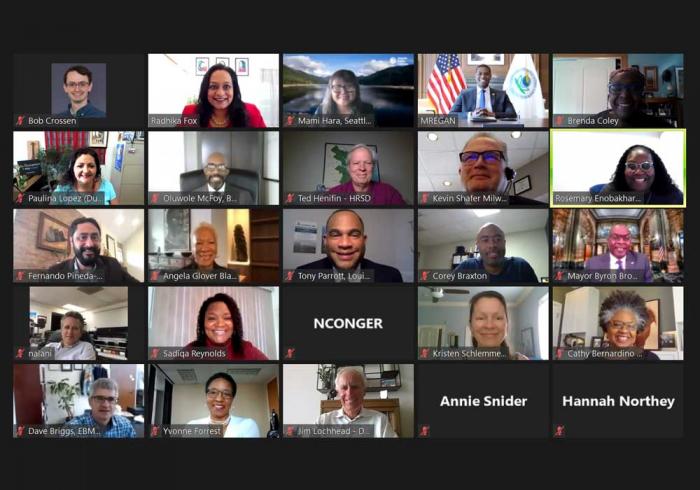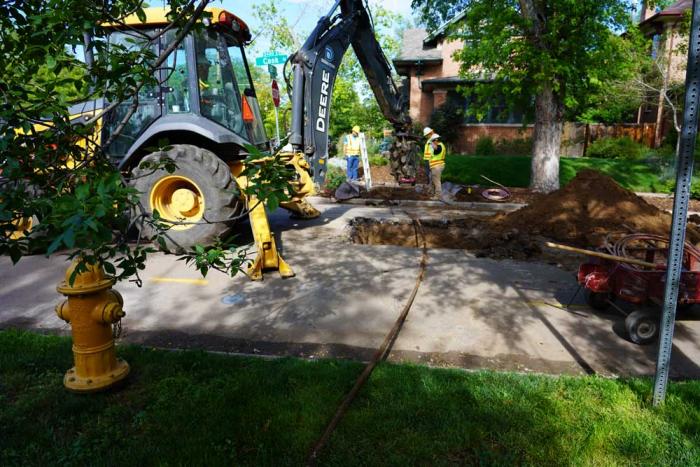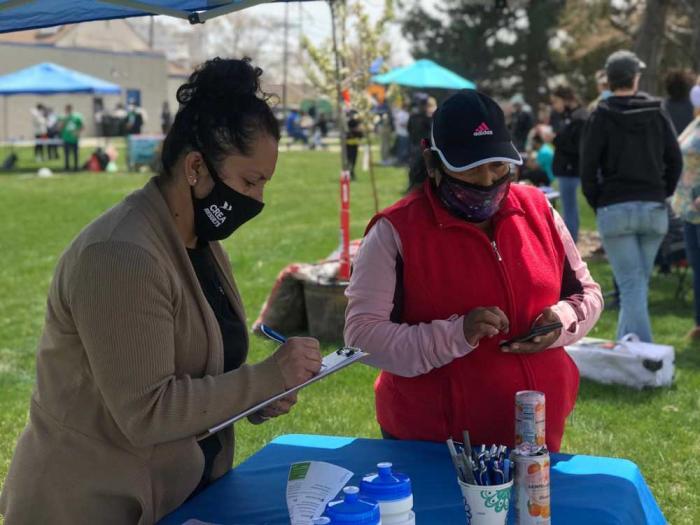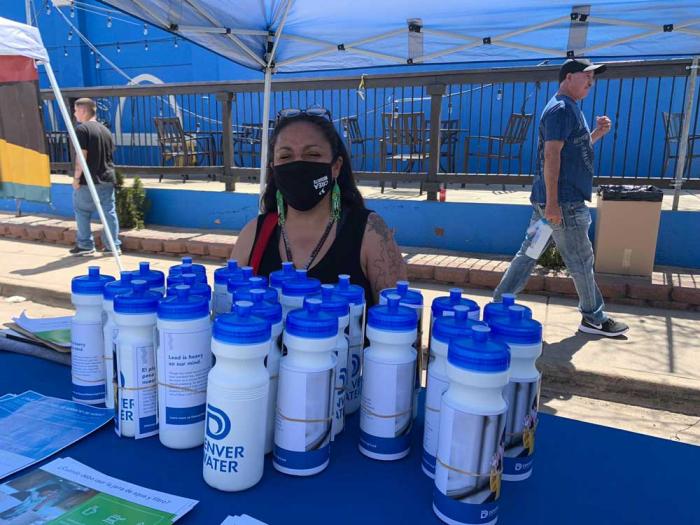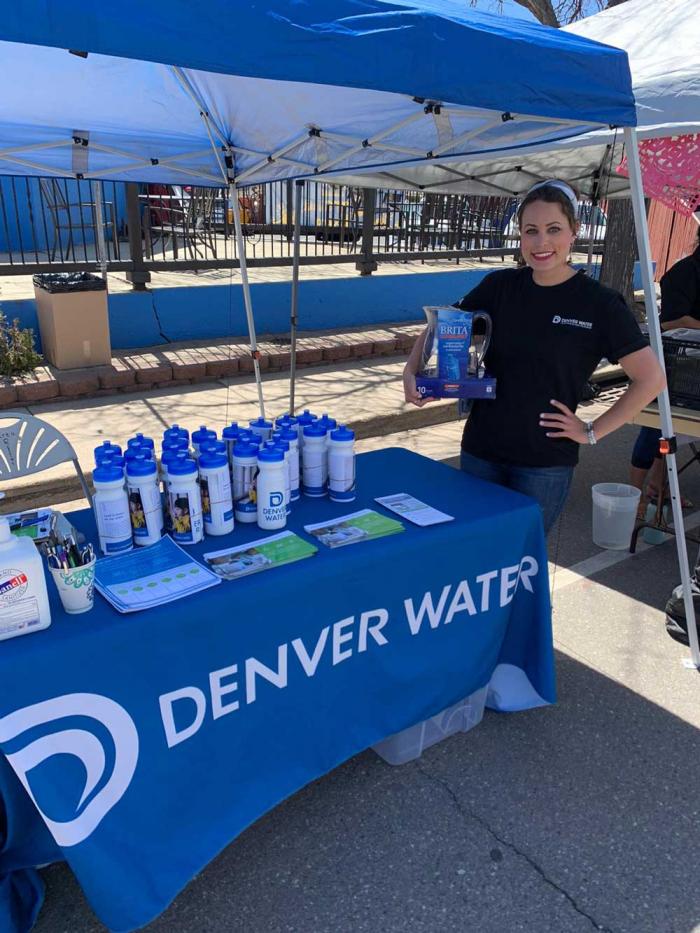EPA looks to Denver Water as example for $2 trillion American Jobs Plan
In early April, more than a dozen leaders of water utilities and community partners met virtually with the head of the Environmental Protection Agency, Michael Regan.
Denver Water CEO/Manager Jim Lochhead was invited to be on the call, as was Fernando Pineda-Reyes, the CEO and founder of CREA Results, one of the many contractors working with Denver Water on its Lead Reduction Program.
They discussed the water industry’s infrastructure needs, the jobs it can provide, how utilities are connecting with hard-to-reach communities and customers, and the money dedicated to the industry as part of the $2 trillion American Jobs Plan proposed by President Joe Biden on March 31.
The plan proposes to spend $111 billion on water infrastructure. It calls for reducing lead in schools and child care facilities and removing the estimated six to 10 million lead service lines that carry water into U.S. homes.
That effort is well underway in the Denver metro area with Denver Water’s Lead Reduction Program.
“(The) discussion highlighted that local leaders need a stronger federal partner when it comes to water infrastructure. The American Jobs Plan would do just that while providing the resources that communities desperately need to deliver essential water service for all,” Regan said in a statement after the call.
The water Denver Water delivers to homes and businesses is lead-free, but lead can get into water as it passes through customer-owned service lines that contain lead.
The Lead Reduction Program, which launched in January 2020, will replace the estimated 64,000 and 84,000 customer-owned lead service lines, the primary source of lead in drinking water, in Denver Water’s service area by the end of 2035 at no direct cost to the customer.
Many people and factors contributed to the first year’s success, Lochhead told the group, but a key part of the program has been communicating with low-income communities and communities of color.
“We recognized that we needed to not just inform these diverse communities, but to engage with them — and that as government, we weren’t necessarily trusted,” he said. “But we cannot be successful without the community, and we needed to address diverse community needs, including access to technology, different languages and differences that may fall along generational lines.”
Information about the program is distributed in English and Spanish, two languages that reach about 95% of the customers enrolled in the program.
Denver Water also created an Ambassador Program that partners with trusted community organizations, including iNOW and CREA Results, to help eliminate additional barriers and reach groups that speak other languages.
For Pineda-Reyes, partnering with Denver Water’s Lead Reduction Program was a natural fit for CREA Results and evidence that the utility was willing to do the hard work required to reach deeply into its community.
“As an organization of health promoters, or Promotores de Salud, we’re working at a grassroots level. We meet people where they are, but we don’t leave them there,” Pineda-Reyes said.
“And with the Lead Reduction Program, we’re letting people know the issue on hand, what Denver Water is doing about it — and also what they can and should be doing to protect their health and the health of their kids.”
During the virtual meeting, Pineda-Reyes highlighted unique aspects of Denver Water’s approach to the problem of legacy lead service lines in older properties.
So often, he said, programs aimed at improving public health circumstances come with qualification and eligibility rules.
But that’s not the case with the Lead Reduction Program. All customers who have a service line that contains lead are automatically enrolled in the program and will receive water filters to use until six months after their new, copper service line is installed at no direct cost to them.
“In this program, you’re basically just asking people to say yes, or to have the landlord say yes, and Denver Water is willing to work with you. And giving the water filters to people in the program, that gives ownership to the families, which is so important.
“Denver Water is saying they’re doing everything they can, and they need the families, the community, to give 100% too — for the kids, because the kids deserve to have everyone do the best that they can for them,” he said.
Another aspect Pineda-Reyes highlighted was Denver Water’s use of grassroots community organizations — rather than simply rolling out an advertising campaign.
“It’s so important to reach out to organizations like us and the nonprofits who are already there, who are already doing the heavy lifting,” he said, “because these groups have very different approaches to get engagement and that’s where the big quantum leaps come from.”
Denver Water’s holistic program also raised the pH of the water to reduce the corrosivity as a way to better protect those with lead risks in their plumbing.
Last year, Denver Water replaced more than 5,200 lead service lines and distributed more than 100,000 water filters to customers in the program. It created more than 300 good-paying jobs, positions that are expected to last for the life of the program.


